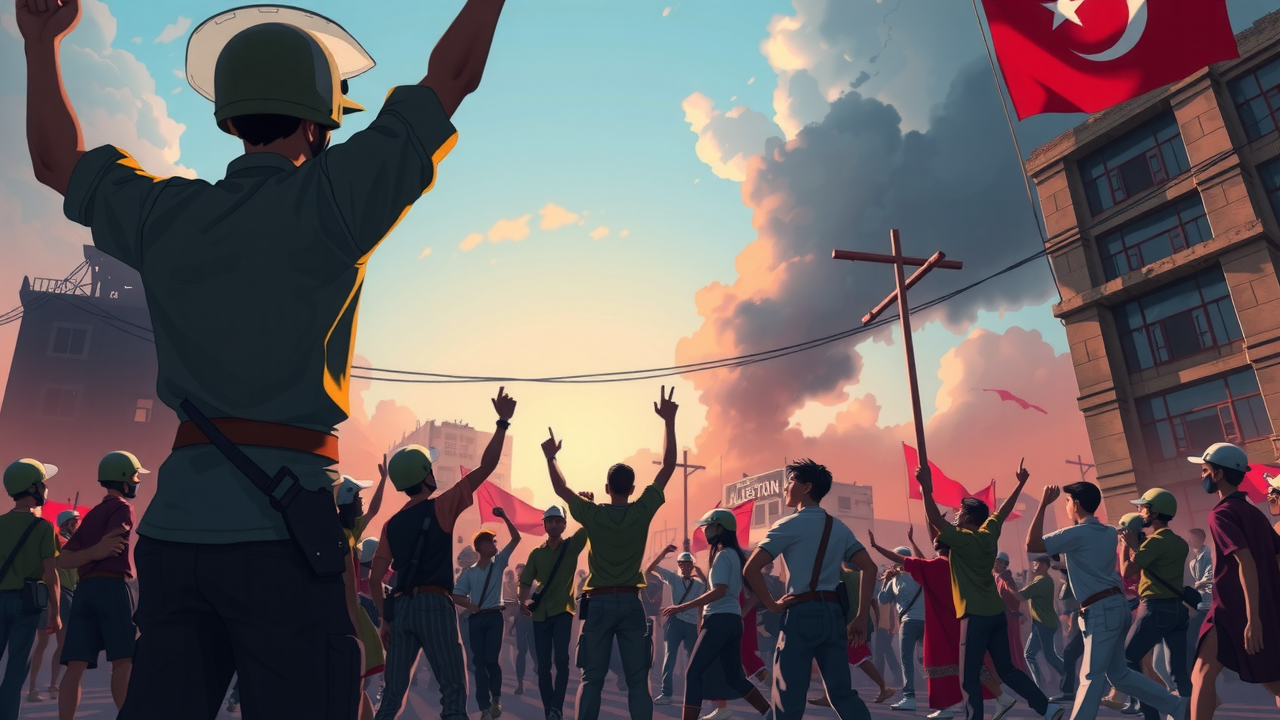Amid escalating violence over the job quota system, Bangladesh has imposed a strict curfew and deployed military forces in Dhaka to restore order. The curfew, starting at midnight and relaxing briefly for essentials, aims to control widespread unrest and clashes that have resulted in numerous casual

Bangladesh is currently engulfed in a severe crisis as widespread violent protests break out over the contentious issue of government job allocations. This unrest, triggered by widespread frustration with a quota system that students and critics argue is discriminatory, has led to dramatic clashes and severe disruptions. The government has responded with a strict curfew and has deployed military forces in the capital city of Dhaka to restore order. This unprecedented situation has resulted in numerous deaths and injuries, marking the most significant challenge to Prime Minister Sheikh Hasina since her re-election for a fourth consecutive term in January.
The unrest, sparked by the contentious job quota system, has seen students
and citizens demand immediate changes. Despite the government’s offer to negotiate, protesters, fueled by frustration and a sense of injustice, have rejected talks, demanding concrete actions instead. The escalating violence has led to shutdowns of essential services and drawn international attention, adding urgency to the need for resolution.
Background of the Protests:
- Issue: Students are protesting against the quota system in government job allocations.
- Quota System: Reserves up to 30% of jobs for relatives of veterans from the 1971 war of independence against Pakistan.
- Students’ Argument: The system is discriminatory and benefits supporters of Hasina’s Awami League party.
- Demand: Shift to a merit-based system.
Escalation of Violence:
- Initial Protests: Began weeks ago but escalated sharply on Tuesday.
- Clashes: Occurred between police and protesters in Dhaka and other cities.
- Government Response: Blocked mobile and internet services; several TV news channels taken off air.
Casualties and Curfew:
- Friday:
- Somoy TV reported 43 deaths.
- Associated Press reporter saw 23 bodies at Dhaka Medical College and Hospital.
- Thursday: 22 people died as students attempted a “complete shutdown” of the country.
- Earlier Days: Several deaths on Tuesday and Wednesday.
- U.S. Embassy: Indicated “hundreds to possibly thousands” injured across Bangladesh.
- Curfew: Started at midnight, relaxed from noon to 2 p.m. for essentials, reinstated until 10 a.m. Sunday.
- “Shoot-at-Sight” Order: Issued for extreme cases.
Government Response:
- Previous Decision: Hasina’s government halted job quotas after 2018 protests.
- High Court Decision: In June, reinstated quotas, pending an appeal.
- Hasina’s Appeal: Called on protesters to wait for the court’s verdict scheduled for Sunday.
Opposition Involvement:
- BNP Support: The main opposition Bangladesh Nationalist Party (BNP) supports the protests and plans its own demonstrations.
- BNP’s Stance: Denies responsibility for violence; does not support sabotage for political reasons.
- Political History: Awami League and BNP have a history of mutual accusations regarding political chaos and violence.
Recent Developments:
- Meetings: Representatives from both sides met on Friday to find a resolution.
- Student Leaders’ Demands: Quota reform, reopening of student dormitories, resignation of university officials who failed to prevent campus violence.
- Government Stance: Law Minister Anisul Huq expressed openness to discussing the students’ demands.
The ongoing chaos underscores deep governance and economic challenges in Bangladesh, reflecting the frustration among the youth over limited job prospects. The situation remains tense, with both political and judicial processes in play to address the grievances and restore order.





